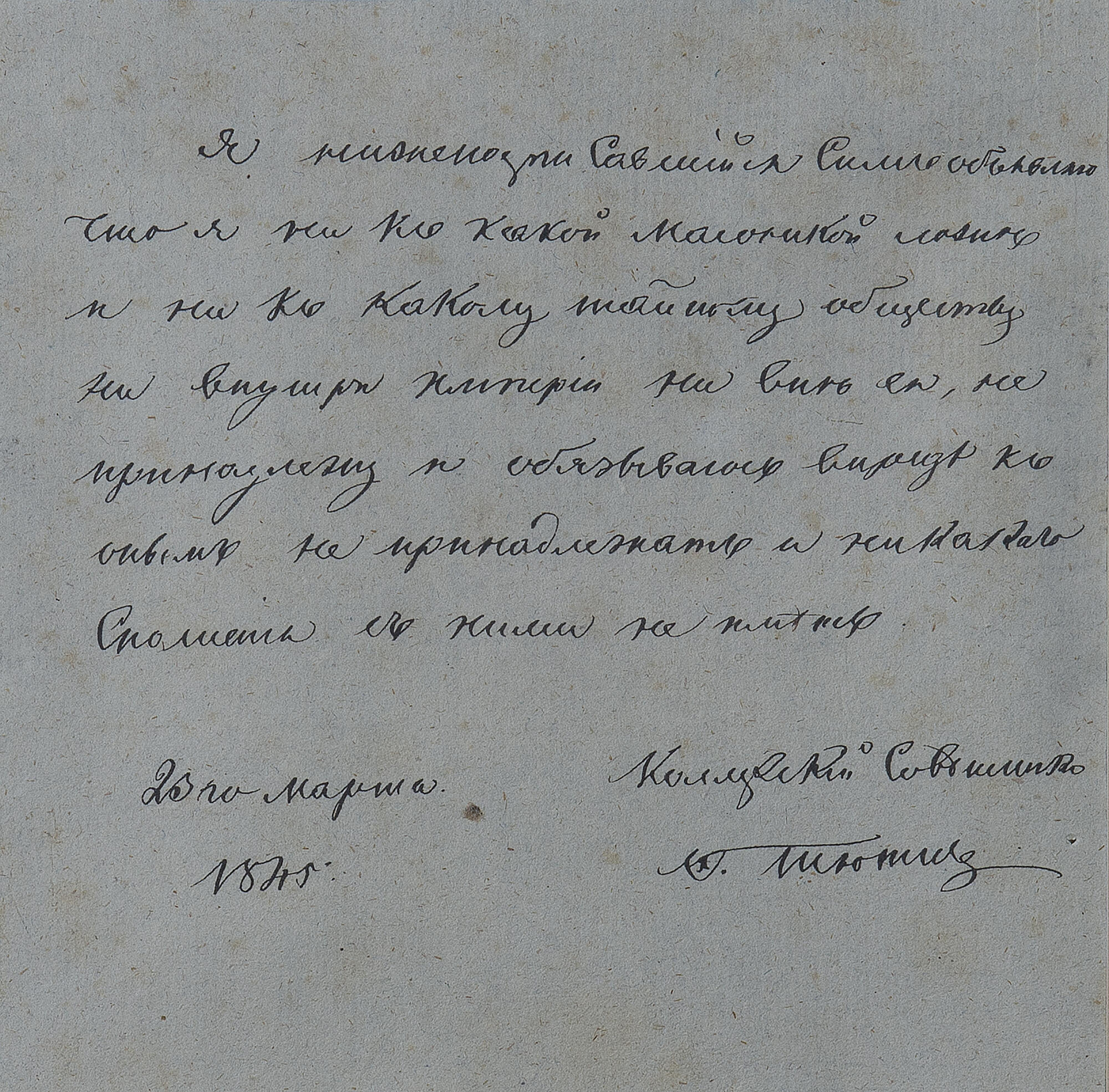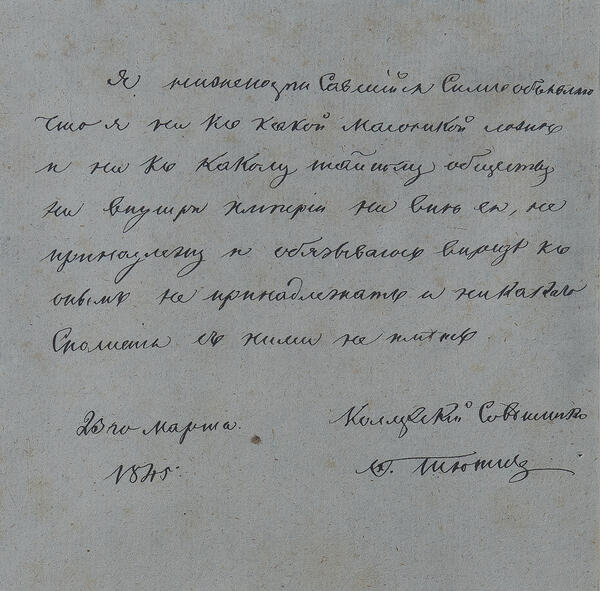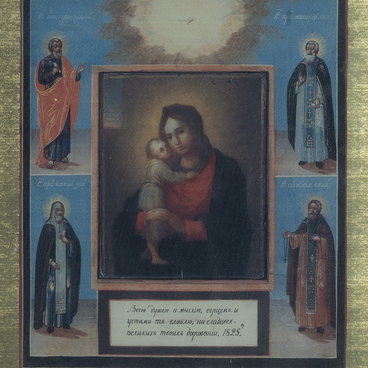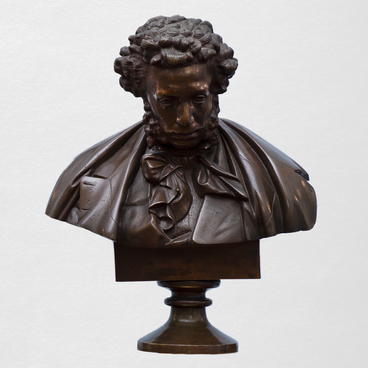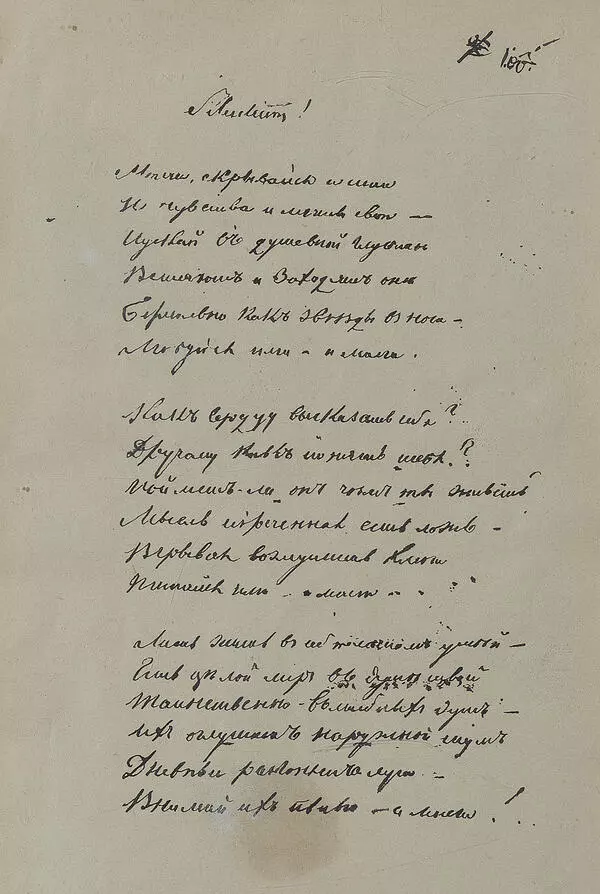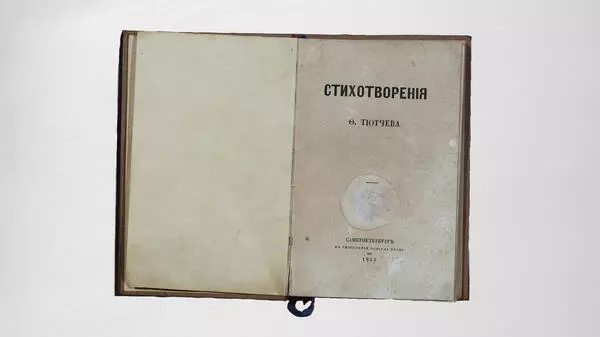In the fall of 1833, Tyutchev was entrusted with a responsible and important mission — he had to go to Greece with a letter containing important information about Greece’s relations with France, England and Russia. Another important appointment in the poet’s diplomatic career happened in August 1837. Then Tyutchev became the senior secretary of the Russian mission in Turin.
This service had a significant impact on the poet’s circle of friends. In Munich, Tyutchev met the philosopher Friedrich Schelling and the poet Heinrich Heine, whose works he translated into Russian with much enthusiasm. Also among his friends were the architect Leo von Klenze and other representatives of the German literary and artistic circles.
The museum collection contains unique documents drawn up and written by Fyodor Tyutchev — these are copies that were made on the 19th-century paper and donated to the collection by the Ministry of Foreign Affairs. One of them is Tyutchev’s official letter that he does not belong “to any Masonic lodge or to any secret society”, which he wrote on March 23, 1845. Emperor Alexander I signed the first decree that was officially published in Russia and banned Masonic lodges and secret societies in 1822. (“All secret societies under whatever names they exist, such as: Masonic lodges or others, should be closed and their institutions will not be allowed in the future.”) Later, in 1826, Nicholas I confirmed the order.
The museum collection also houses “The report of the envoy of Russia in Munich I.I. Vorontsov-Dashkov to the head of the Russian Ministry of Foreign Affairs K.V. Nesselrode on the arrival in Munich of the attaché of the Russian mission F.I. Tyutchev”, “The report of the collegiate assessor F.I. Tyutchev on the departure of the envoy in Munich, Prince Gagarin, to the Carlsbad waters and ‘on his performance of the duties of chargé d’affaires”, as well as many other documents.
